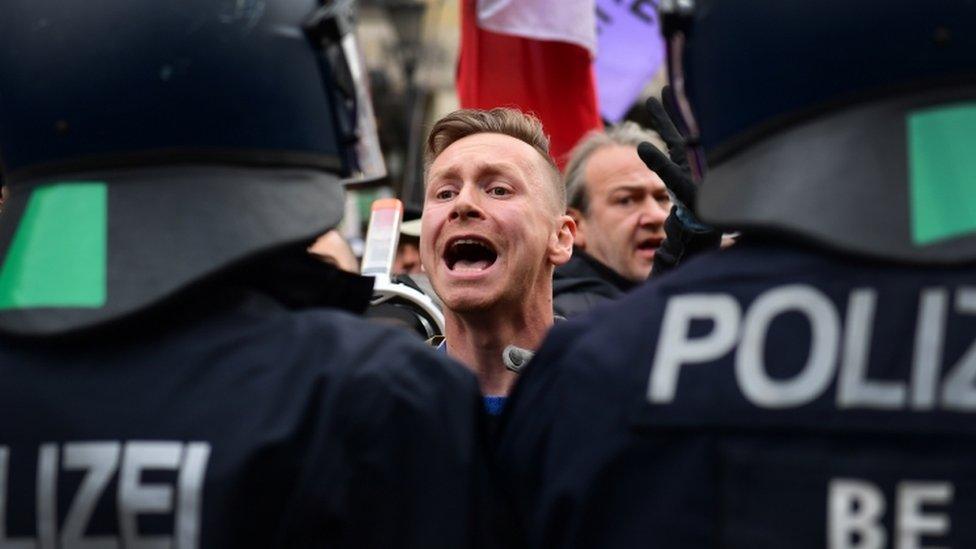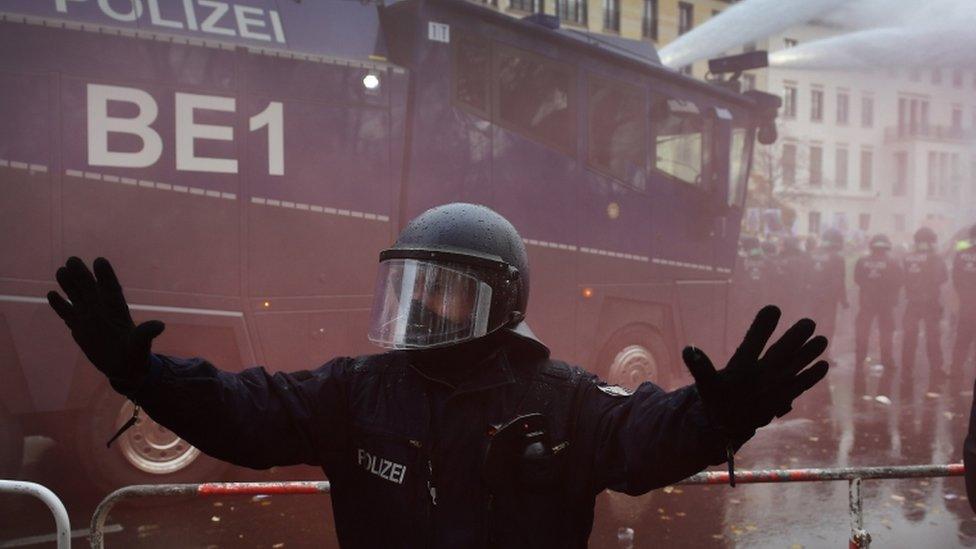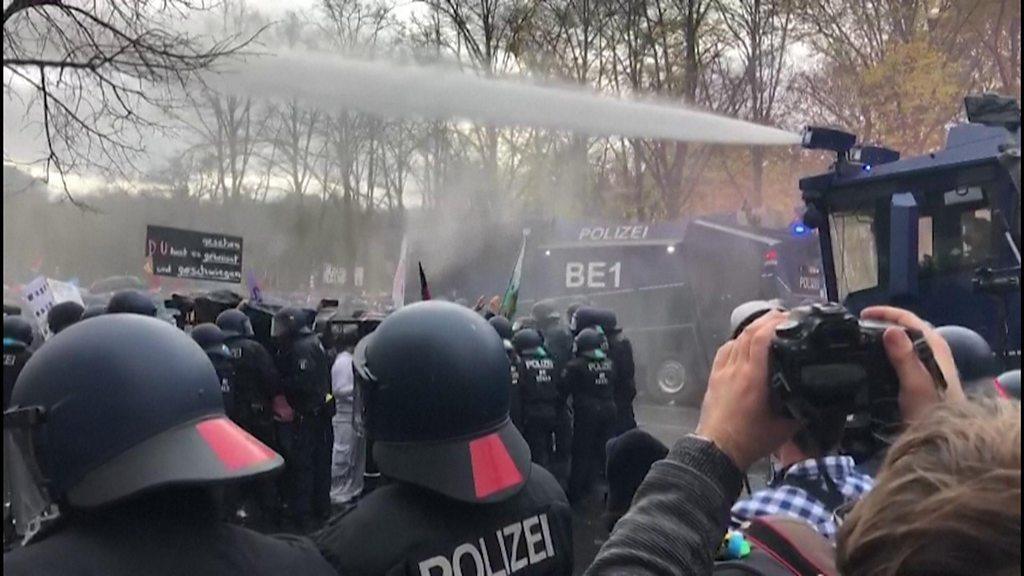Berlin Covid protest broken up near Brandenburg Gate
- Published
Police used water cannon after repeatedly telling protesters to disperse
Police have used water cannon to break up a protest by thousands of people in the centre of Berlin against changes to the law on coronavirus measures.
Berlin authorities said protesters had ignored requests to wear masks.
They announced the decision to halt the protest minutes after the Bundestag (German parliament) began debating reforms that give the government more powers during a pandemic.
Critics have condemned restrictions on people's liberties.
While Germany has not been hit as hard as other European countries by the Covid-19 pandemic, the rate of daily infections remains high and 13,119 people have died from the virus.
A partial lockdown has been in place across Germany's 16 states for the past two weeks and Health Minister Jens Spahn told the Bundestag that the increasing number of infections meant, sooner or later, an increase in suffering too.

Meanwhile, more than 10,000 protesters defied a ban on their rally and assembled on Tuesday morning between the Brandenburg Gate and the Reichstag where the parliament is housed.
German media said Covid-deniers from the "Querdenken" (outside-the-box thinkers) group had been mobilising for days along with anti-vaccination campaigners and far-right activists ahead of what had been termed Day X.
Shortly after midday police decided to end the demonstration, explaining that the majority were not wearing face coverings or observing social distancing.
Bottles, stones and firecrackers were thrown as police made their move. Hundreds more protesters took part in a separate rally a short distance away at the Marschall bridge.

How significant are the protests?

Police using water cannon slowly pushed thousands of soaked, chanting protesters back as they began to try to break up the demonstration around the Brandenburg Gate. The protesters were packed tightly together and the vast majority were not wearing face coverings.
Not far away, in the Bundestag, politicians debated a change to the infection protection law which will, in effect, give the government more power to impose coronavirus restrictions, leaving them less vulnerable to legal challenges.

Demonstrations close to the Reichstag had been banned during Wednesday's session
Some critics have, controversially, likened the proposed change to the so called "Enabling Act" of 1933 with which politicians handed over legislative power to Adolf Hitler.
The politics of coronavirus have enraged a relatively small, but vociferous, number of Germans.
Inflamed by right-wing extremists and conspiracy theorists, they've taken to the streets a number of times over the last few months.

- Published18 November 2020

- Published16 November 2020
